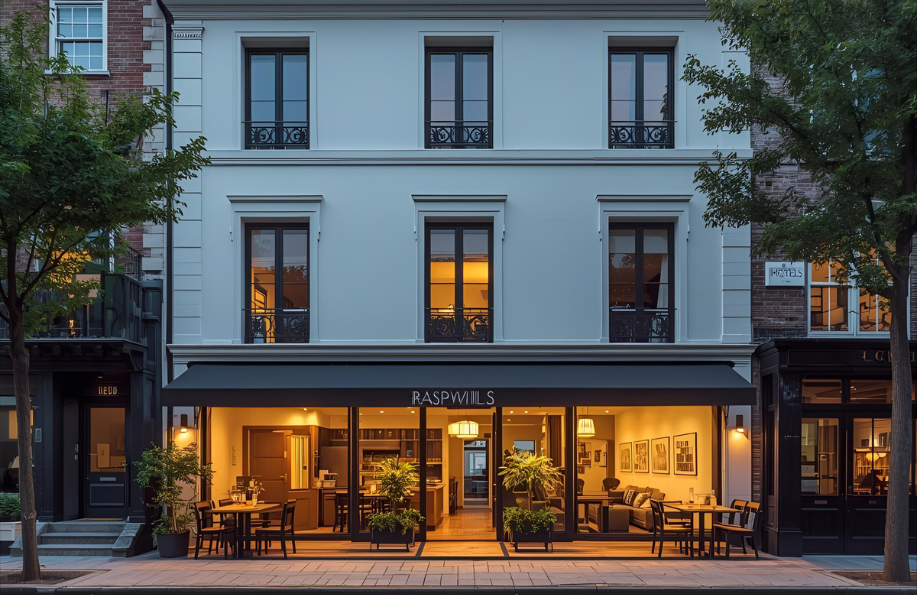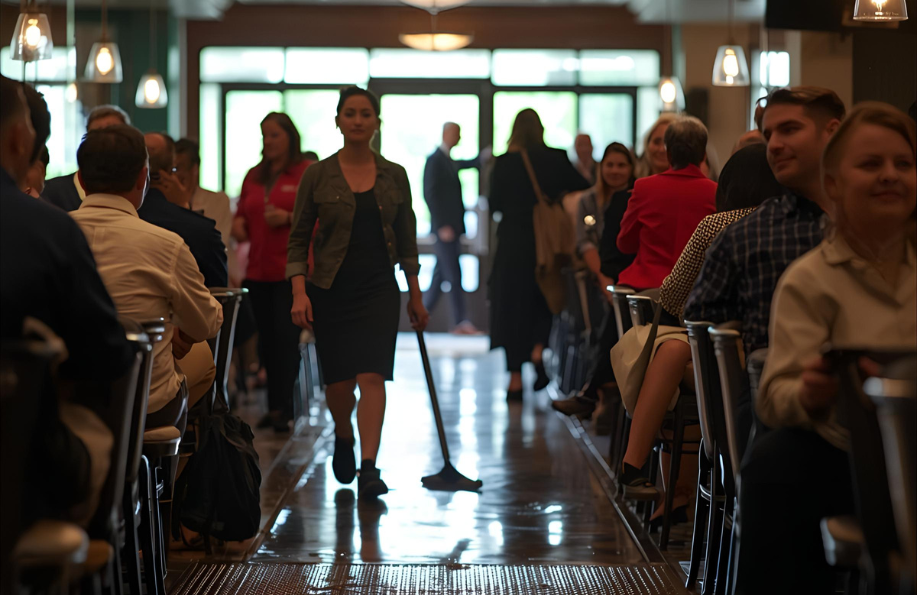Running a hotel, motel, restaurant, or event venue in Australia can be rewarding, but it also comes with serious risks. Whether it’s property damage, guest injuries, or unexpected business closures, one incident can disrupt operations and significantly impact your bottom line.
At Global Insurance Solutions, we’ve worked with hospitality businesses across Australia — from boutique hotels to bustling motels and event venues. One common truth we’ve seen is this: having the right hospitality insurance isn’t just important, it’s essential.
In this article, we’ll explore the top risks facing the hospitality industry in Australia and explain how insurance cover can protect your business against financial, legal, and reputational damage.
1. Property Damage and Natural Disasters
For hospitality businesses, the physical premises are at the heart of operations. Hotels, restaurants, motels, and event spaces all depend on functional buildings, commercial kitchens, and guest areas.

Risks include:
- Fire damage from faulty wiring or kitchen mishaps
- Flooding in storm-prone areas
- Storm or cyclone damage in coastal regions
- Vandalism or theft targeting valuable property
Insurance Protection:
- Property Insurance: Covers the repair and replacement costs of buildings, furniture, and fittings.
- Business Interruption Insurance: Covers lost income if your business can’t trade while the property is being repaired.
For example, if a severe storm damages your hotel roof, property insurance funds the repairs, while business interruption cover ensures you can still pay staff and bills during closure.
2. Workplace Health and Safety Risks
The hospitality industry employs a large, often casual, workforce. Staff may be carrying heavy trays, working long shifts, or handling hot equipment in kitchens.

Risks include:
- Slips, trips, and falls in dining or service areas
- Burns, cuts, or injuries in kitchens
- Repetitive strain injuries from housekeeping or bar work
Insurance Protection:
- Workers’ Compensation Insurance (mandatory in Australia): Ensures your staff are covered for workplace injuries.
- Management Liability Insurance: Protects business owners against claims that they failed to follow workplace health and safety laws.
Failing to safeguard staff isn’t just a legal issue—it can also cause reputational damage. Having the right cover gives both employers and employees peace of mind.
3. Guest Injuries and Liability Claims
Guests expect a safe and enjoyable experience — but accidents happen. A customer slipping on a wet floor or being injured by faulty equipment could easily lead to expensive liability claims.

Risks include:
- Slips and falls in lobbies or bathrooms
- Food poisoning incidents
- Allergic reactions to menu items
- Equipment or facility-related injuries
Insurance Protection:
- Public Liability Insurance: Covers legal fees, compensation costs, and settlements if a guest makes a claim.
- Product Liability Insurance: Covers claims arising from food or drink consumed on your premises.
Without liability cover, the cost of defending even a minor claim could put smaller hospitality businesses at serious financial risk.
4. Cyber Security and Data Breaches
Many hospitality businesses now rely heavily on digital systems for bookings, payments, and guest data collection. Unfortunately, this makes them a target for cybercriminals.

Risks include:
- Hacked booking systems exposing guest data
- Ransomware is locking down payment systems
- Credit card fraud
Insurance Protection:
- Cyber Insurance: Covers financial losses due to cyber-attacks, system outages, and data breaches, as well as support for crisis management and reputational repair.
In a world where guest trust is everything, a cyber-attack can destroy confidence in your business. Having cyber insurance ensures you can respond quickly and minimise damage.
Explore: Cyber Risk Insurance | Cyber Incident Response Plan
5. Event Cancellation and Business Interruption
For event venues and hotels hosting functions, cancellations are a major concern. A sudden lockdown, extreme weather event, or even supplier failure can derail carefully planned events.
Risks include:
- Weddings or conferences cancelled at short notice
- Supply chain disruptions affecting catering or hospitality services
- Pandemics are forcing venue shutdowns
Insurance Protection:
- Event Insurance: Covers financial losses from cancellations, postponements, or disruptions.
- Business Interruption Insurance: Ensures ongoing expenses like rent and wages are covered during unplanned closures.
The COVID-19 pandemic highlighted how essential business interruption and event-specific insurance policies are for the hospitality sector.
6. Underinsurance Risk in Hospitality
One of the biggest issues we see as brokers is businesses undervaluing their property or stock, leaving them exposed in the event of a claim. Rising property values and inflation mean your sum insured may already be outdated.
Insurance Protection: Regular reviews of your hospitality insurance policy — including property values, stock levels, and revenue figures — protect against underinsurance.
At Global Insurance Solutions, we regularly review cover with our hospitality clients to ensure their insurance reflects the true replacement costs.

Why Partner with a Specialist Insurance Broker?
Every hospitality business is different. A boutique guesthouse faces different risks than a large event venue or busy motel. Choosing an experienced insurance broker ensures your business is protected by tailored cover — not one-size-fits-all policies.
At Global Insurance Solutions, we:
- Compare policies across multiple insurers to secure the best cover at competitive rates
- Advise on risk management to reduce claims in the first place
- Provide ongoing support, from claims handling to reviewing insurance needs as your business grows
Final Thoughts
The hospitality industry is vibrant, but it’s also exposed to risks that can disrupt operations sometimes overnight. The right insurance doesn’t just cover the cost of disasters; it keeps your business running, your staff supported, and your reputation intact.
If you run a hotel, motel, restaurant, or event venue in Australia, now is the time to review your insurance cover. Don’t wait for a crisis before finding out you’re underinsured.
Speak to Global Insurance Solutions today for a FREE hospitality insurance review. Our team will ensure your business has the right protection for tomorrow not just today.
FAQs on Insurance For the Hospitality Industry
1. What type of insurance do hotels in Australia need?
Hotels typically need property insurance, public liability insurance, business interruption insurance, cyber cover, and workers’ compensation. The right mix depends on the size and services of the hotel.
2. Do motels need different insurance than hotels?
Generally, motels require similar coverage to hotels (property, liability, workers’ compensation, business interruption). However, policies can be tailored depending on whether they provide food and beverage services or host events.
3. Is public liability insurance mandatory for hospitality businesses?
While not legally mandatory across all states, most councils, landlords, and event contracts require it. It’s considered essential for safeguarding against guest injury claims.
4. What is event insurance, and who needs it?
Event insurance protects against losses from cancellations, postponements, or disruptions. Venues, event organisers, and even hotels hosting conferences or weddings benefit from this cover.
5. How often should hospitality insurance be reviewed?
We recommend reviewing policies annually or whenever there are significant business changes, such as renovations, expansion, or increased revenue.
Important notice
This article is of a general nature only and does not take into account your specific objectives, financial situation or needs. It is also not financial advice, nor complete, so please discuss the full details with your insurance broker as to whether these types of insurance are appropriate for you. Deductibles, exclusions and limits apply. You should consider any relevant Target Market Determination and Product Disclosure Statement in deciding whether to buy or renew these types of insurance. Various insurers issue these types of insurance and cover can differ between insurers.
This article provides information rather than financial product or other advice. The content of this article, including any information contained in it, has been prepared without taking into account your objectives, financial situation or needs. You should consider the appropriateness of the information, taking these matters into account, before you act on any information. In particular, you should review the product disclosure statement for any product that the information relates to it before acquiring the product.
Information is current as at the date the article is written as specified within it but is subject to change. Global Insurance Solutions Pty Ltd make no representation as to the accuracy or completeness of the information. Various third parties have contributed to the production of this content. All information is subject to copyright and may not be reproduced without the prior written consent of Global Insurance Solutions Pty Ltd.
Also Read : Insurance Essentials For Franchise Businesses | Business Growth Strategies | Cyber Incident Response Plan | Australian Business Risk Strategies
Explore Our Products : Business Insurance | Commercial Property Insurance | Management Liability Insurance | Directors and Officers Insurance

Risk Advisor, Insurance Broker & Director
With around 15 years in insurance, Yuvi Singh is a passionate Risk Advisor, Director, and Insurance Broker at Global Insurance Solutions. Backed by a Commerce degree and ANZIIF diploma, Yuvi leads a team servicing SMEs across industries like manufacturing, logistics, fuel, IT, and more. At GIS, clients benefit from tailored, transparent advice, access to 150+ insurers, and end-to-end risk solutions. Recognised as a 2022 Insurance Magazine Rising Star and 2024 Top Insurance Broker by Insurance Business Australia, Yuvi delivers flexible, effective outcomes with integrity and innovation.

